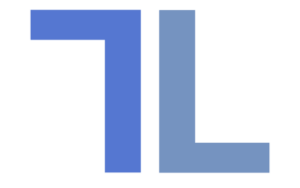Coffre: A Safer, Smarter Way to Submit Assignments
Maintaining integrity in programming assignments has become increasingly complex. In 2024, many students accessed AI-powered coding tools during unproctored assignments, with some reports stating this number was close to 70%.
This article introduces Coffre, an innovative virtual machine developed by students at IITB Trust Lab. Designed to provide a secure, streamlined environment for completing and submitting assignments, Coffre helps maintain fairness while supporting student autonomy, and represents a forward-looking approach to academic honesty in the digital age—combining usability with integrity.
Unlike proctored exams, programming assignments typically take place in unmonitored settings—students complete them at home, on personal devices, connected to any network of their choice. While this model offers flexibility and convenience, it also opens the door to a wide range of integrity concerns. Without any formal oversight, students can easily share code with peers, or even submit assignments completed by someone else.
These issues are not new, but their scale and ease have dramatically increased in recent years. With just a few clicks, a student can now find solutions to common programming tasks on forums, GitHub repositories, or Q&A websites. Even more significantly, the rise of Generative AI tools like ChatGPT and GitHub Copilot has introduced a new dimension to this problem.
These tools can produce working code in seconds, often bypassing the need for deep understanding or problem-solving. As a result, a student may be able to generate correct-looking solutions without grasping the underlying concepts—leading to a false sense of competence and a serious erosion of academic standards.
For institutions, this presents a difficult dilemma: How do you foster independent learning in open environments while still maintaining fairness, academic honesty, and meaningful assessment?
This is precisely the challenge that Coffre, a tool developed by students of Trust Lab under the guidance of Prof. Uday Khedker, seeks to address. It’s a necessary response to an urgent problem —and one that will only grow in complexity as technology advances.
Introducing Coffre

Coffre is a virtual machine (VM) designed to replicate the full functionality of a development environment, while deterring the possibility of malpractice.
It achieves this by disabling internet access, blocking copy-paste, and disallowing external disk mounting, ensuring students work in a semi-controlled setup.
Assignments are completed entirely within Coffre. Students can write, test, and review their code within the VM. It supports version control via Git, allowing work done in one session to be saved and continued later, even across virtual machine instances.
Coffre works seamlessly on macOS, Ubuntu, and Windows machines, and does not require continuous internet connectivity, critical for students working in varied network conditions.

More than just a sandbox, Coffre also streamlines the student workflow. Within the same interface, students can download assignment resources, view deadlines, and submit their work.
Upon submission, a green dialog box confirms backend receipt, and students can even re-download their latest submission to cross-verify its status or retrieve it later.
Once the assignment is evaluated, Coffre allows for easy access to TA feedback. The tool also supports collaboration between students where appropriate giving them academic flexibility.
The Path Ahead
Currently it is being actively used as part of the compiler course for about two hundred undergraduate students. Coffre is undergoing active bug testing and feedback collection, with the goal to scale this tool across the entire Computer Science department at IIT Bombay. Eventually, we hope to make it available to other universities and institutions seeking practical, scalable solutions to the universal problem of assignment integrity at institutions of learning.
As IITB Trust Lab continues to blend research with real-world implementation, Coffre stands as an example of how we can use technology to proactively adapt to emerging challenges posed by technology itself.
If you want to know more about Coffre, or would like to explore possibilities around using it in your institution, reach out to us at trustlab@cse.iitb.ac.in

